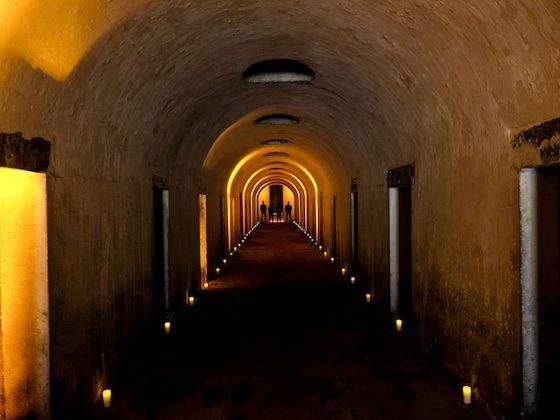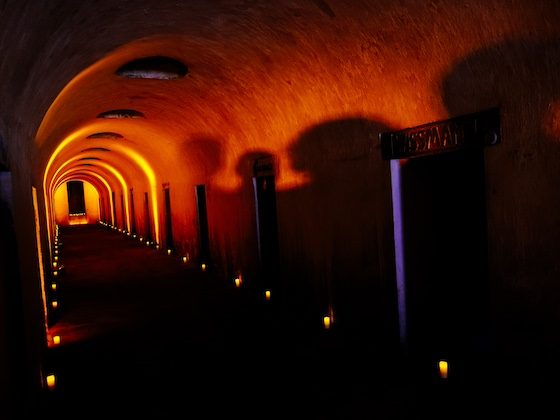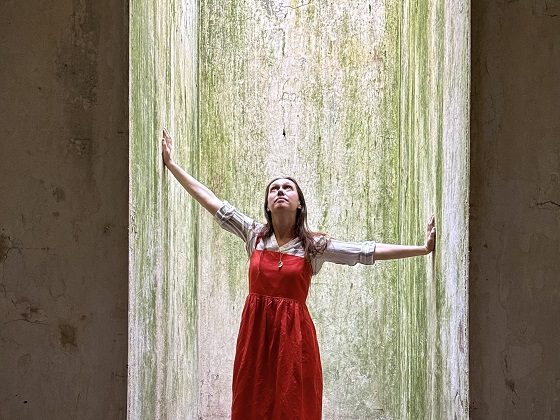Angel’s Share: Beethoven’s String Quartet No. 15, Op. 132
Beethoven's final String Quartet is an indescribably powerful, transcendently life-affirming masterpiece. Its movements are centered around the towering slow section, which Beethoven wrote after recovering from a terrible illness, solemnly titling it a “Hymn of thanks to God from one who is healed.” In times of despair and division, the beauty of this music remains a balm to the soul, and a reminder of how we can find strength in our darkest moments.
Angel’s Share: Beethoven’s String Quartet No. 15, Op. 132
Beethoven's final String Quartet is an indescribably powerful, transcendently life-affirming masterpiece. Its movements are centered around the towering slow section, which Beethoven wrote after recovering from a terrible illness, solemnly titling it a “Hymn of thanks to God from one who is healed.” In times of despair and division, the beauty of this music remains a balm to the soul, and a reminder of how we can find strength in our darkest moments.
Angel’s Share: Caroline Shaw’s Partita
Caroline Shaw's Pulitzer Prize-winning Partita for 8 Voices is a work of profound emotional beauty, a timeless expression that feels at home in any musical era. For these performances, the groundbreaking vocal talents of Fourth Wall Ensemble will weave together a program that begins with improvised medieval chant, flowing seamlessly through the Renaissance and Baroque periods, before arriving at Shaw's staggering sonic suite.
Angel’s Share: Caroline Shaw’s Partita
Caroline Shaw's Pulitzer Prize-winning Partita for 8 Voices is a work of profound emotional beauty, a timeless expression that feels at home in any musical era. For these performances, the groundbreaking vocal talents of Fourth Wall Ensemble will weave together a program that begins with improvised medieval chant, flowing seamlessly through the Renaissance and Baroque periods, before arriving at Shaw's staggering sonic suite.
Angel’s Share: Caroline Shaw’s Partita
Caroline Shaw's Pulitzer Prize-winning Partita for 8 Voices is a work of profound emotional beauty, a timeless expression that feels at home in any musical era. For these performances, the groundbreaking vocal talents of Fourth Wall Ensemble will weave together a program that begins with improvised medieval chant, flowing seamlessly through the Renaissance and Baroque periods, before arriving at Shaw's staggering sonic suite.
Angel’s Share: mɔɹnɪŋ [morning//mourning]
mɔɹnɪŋ (the phonetic spelling for the word "morning" as well as the word "mourning") is an operatic masterpiece by singer and composer Gelsey Bell, which begins just after humanity has disappeared entirely from the Earth, and traces the weeks, months, years, and millennia that follow. What emerges is a journey through time that is simultaneously whimsical, fantastical, playful and profound, offering a poignant reminder of what it means to be human – despite taking place entirely after our species has vanished from the planet. This specially-adapted production of this critically-acclaimed opera was created just for the Catacombs.
Angel’s Share: mɔɹnɪŋ [morning//mourning]
mɔɹnɪŋ (the phonetic spelling for the word "morning" as well as the word "mourning") is an operatic masterpiece by singer and composer Gelsey Bell, which begins just after humanity has disappeared entirely from the Earth, and traces the weeks, months, years, and millennia that follow. What emerges is a journey through time that is simultaneously whimsical, fantastical, playful and profound, offering a poignant reminder of what it means to be human – despite taking place entirely after our species has vanished from the planet. This specially-adapted production of this critically-acclaimed opera was created just for the Catacombs.
Angel’s Share: mɔɹnɪŋ [morning//mourning]
mɔɹnɪŋ (the phonetic spelling for the word "morning" as well as the word "mourning") is an operatic masterpiece by singer and composer Gelsey Bell, which begins just after humanity has disappeared entirely from the Earth, and traces the weeks, months, years, and millennia that follow. What emerges is a journey through time that is simultaneously whimsical, fantastical, playful and profound, offering a poignant reminder of what it means to be human – despite taking place entirely after our species has vanished from the planet. This specially-adapted production of this critically-acclaimed opera was created just for the Catacombs.
Angel’s Share: mɔɹnɪŋ [morning//mourning]
mɔɹnɪŋ (the phonetic spelling for the word "morning" as well as the word "mourning") is an operatic masterpiece by singer and composer Gelsey Bell, which begins just after humanity has disappeared entirely from the Earth, and traces the weeks, months, years, and millennia that follow. What emerges is a journey through time that is simultaneously whimsical, fantastical, playful and profound, offering a poignant reminder of what it means to be human – despite taking place entirely after our species has vanished from the planet. This specially-adapted production of this critically-acclaimed opera was created just for the Catacombs.
Angel’s Share: mɔɹnɪŋ [morning//mourning]
mɔɹnɪŋ (the phonetic spelling for the word "morning" as well as the word "mourning") is an operatic masterpiece by singer and composer Gelsey Bell, which begins just after humanity has disappeared entirely from the Earth, and traces the weeks, months, years, and millennia that follow. What emerges is a journey through time that is simultaneously whimsical, fantastical, playful and profound, offering a poignant reminder of what it means to be human – despite taking place entirely after our species has vanished from the planet. This specially-adapted production of this critically-acclaimed opera was created just for the Catacombs.
Angel’s Share: mɔɹnɪŋ [morning//mourning]
mɔɹnɪŋ (the phonetic spelling for the word "morning" as well as the word "mourning") is an operatic masterpiece by singer and composer Gelsey Bell, which begins just after humanity has disappeared entirely from the Earth, and traces the weeks, months, years, and millennia that follow. What emerges is a journey through time that is simultaneously whimsical, fantastical, playful and profound, offering a poignant reminder of what it means to be human – despite taking place entirely after our species has vanished from the planet. This specially-adapted production of this critically-acclaimed opera was created just for the Catacombs.
Green-Wood’s public programs are made possible by the New York State Council on the Arts with the support of the Office of the Governor and the New York State Legislature, as well as the New York City Department of Cultural Affairs.



